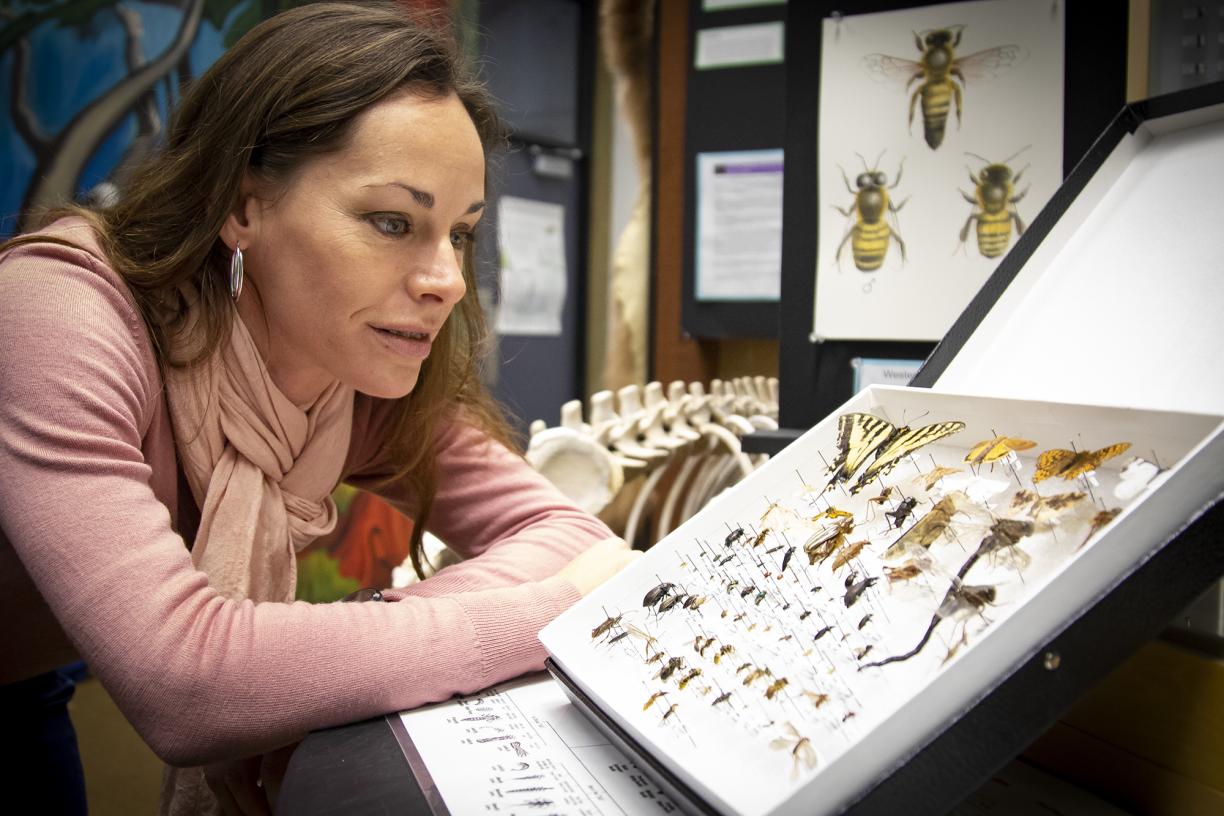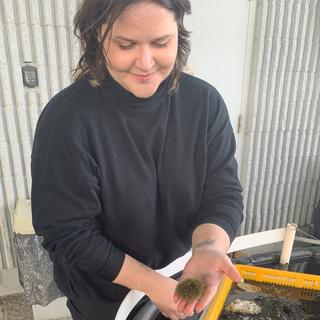Scientific paper sheds light on the damage sensationalist language can have on public opinion and conservation efforts of insect populations.
Insectageddon. The insect apocalypse. A global crisis of insect extinction. These sensationalist words and phrases used in media coverage can lead to public apathy and hinder conservation efforts and research about insect populations worldwide, says Dr. Jasmine Janes, a VIU Biology professor.
In a recent scientific paper, Moving On from the Insect Apocalypse Narrative: Engaging with Evidence-Based Insect Conservation, co-authored with Dr. Manu Saunders and Dr. James O’Hanlon, professors from the University of New England in Australia, they discuss recent media coverage of insect declines based on a small number of studies that are confined to regional insect populations and the harm it can do as well as actions needed to move toward a better understanding of the issue.
Janes says while there is evidence that insects in some parts of the world are declining, in other parts of the world species may be increasing.
“We’ve known for quite a while that the way you message things greatly impacts the audience,” says Janes. “There’s real concern that sensationalist language such as ‘instectaggedon’ desensitizes people and contributes to a sense of hopelessness with respect to conservation issues. We need to make people aware of the issue but we also need to make them understand that there is still hope and we can still make changes.”
The article was recently published in BioScience. Janes says she’s “really excited” about the opportunity and was pleased to work with her colleagues to bring attention to this important topic.
One of the issues with the studies making the news is that they are limited to specific geographic areas and according to scientific method and principles it’s not accurate to use these regional studies to extrapolate to a global scale, says Janes.
She also points out some studies that contradict the insect apocalypse narrative are not being reported on. For example, a 2018 research study examining old and new bee specimens in southern and western Australia resulted in 26 new species of Leioproctus (bees) being discovered, and a 2019 survey in a California national park discovered 48 new bee species.
These studies, and others like them, illuminate the fact that scientists don’t know exactly how many species of insects there are worldwide. Janes said more taxonomists (biologists who name, identify and classify species) are needed.
“We need to know what we are looking at before we know whether we can support it,” says Janes, adding that she encourages citizen scientists to get involved to help catalogue species in their area. “You never know, some citizen scientist might be the one to find a new species.”
Janes says more research is needed to better understand insect behaviour, population dynamics, and boom and bust cycles. When scientists have a better understanding of global insect biodiversity and decline levels it will help inform conservation methods and influence policy.
“Let’s focus on the real problem. We need to do more research on a global scale,” says Janes, adding that many organizations are great at sharing research, but there needs to be more coordination on a larger scale than what is currently happening.
-30-
MEDIA CONTACT:
Rachel Stern, Communications Officer, Vancouver Island University
P: 250.740.6560 l C: 250.618.0373 l E: Rachel.Stern@viu.ca | T: @VIUNews





